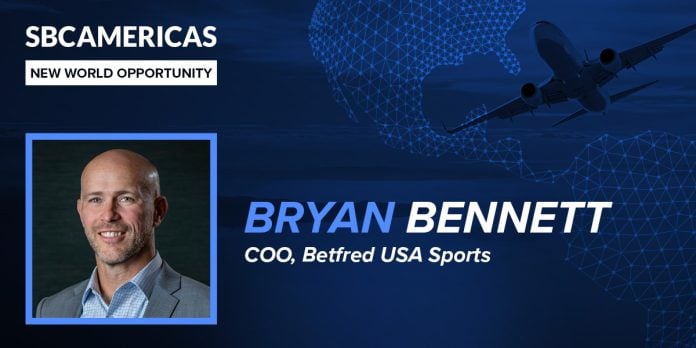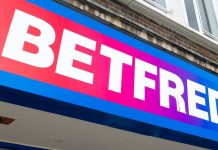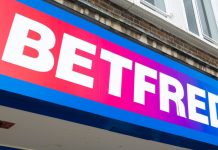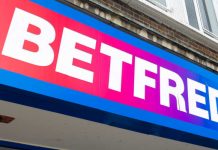Las Vegas is still, ‘for better or worse’, the betting and gaming capital of the US, Bryan Bennett remarked, as Betfred USA Sports finally cut the ribbon on its sportsbook in the city.
Breaking down the UK-founded brand’s experience of the US to SBC Media’s New World Opportunity series, the firm’s Chief Operating Officer highlighted key transatlantic differences – and more importantly, how the bookmaker addressed them.
Nevada – ‘a massive win’
As Bennett asserted, there are some major gaming hotspots in the US – Las Vegas being amongst them, although New Jersey has been a notable target entry-market for European actors.
In contrast, Betfred has taken an ‘opportunistic’ approach, a strategy which has fallen in line with the wave of sports betting legislation that has swept the country, with 37 states having legalized some form of regulated gaming.
For Betfred, day one was Iowa, as Bennett explained: “We first launched in Iowa in 2020 just before the Super Bowl, and at the time it was tough getting our name out there as not many people are familiar with Betfred.
“The first big step was getting someone to take a chance on us. Elite Casino Resorts in Iowa were the first to do that. Iowa had just legalized, and they were looking for someone at their casino in the northwestern corner of the state.”
From its Iowa beachhead, Betfred’s US brand has secured market access in Colorado, Ohio, Virginia and finally Nevada, and given the latter state’s status as one of the country’s igaming capitals, the firm’s COO expects nothing but progress.
“From there on we followed the wave of legalizations, we never went back and tried to go into New Jersey,” Bennett continued.
“It’s never been our wheelhouse to go into states that were already legalized. We want to keep up with the new legislation and let that lay down our roadmap for us.”
That is not to say that it has been an entirely smooth process, however – Bennett reflected that the regulatory environment is tough for UK-founded companies to adapt to, due to it being far more fragmented.
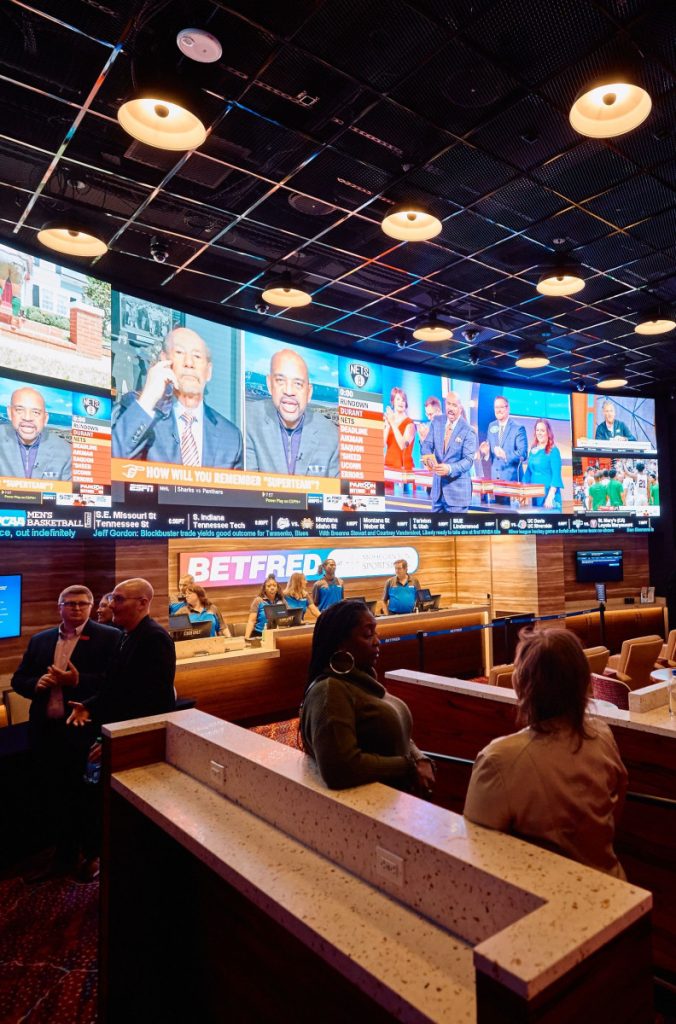
In Nevada, it has taken Betfred close to two years to secure market launch, as Bennett lamented that the firm was somewhat ‘naive’ when going in front of the state’s Gambling Commission.
However, the opening of the Betfred’s Vegas sportsbook this month was a ‘massive win’, he asserted, explaining: “We’re the only European sportsbook to do that, William Hill have been here but got in through an acquisition, whilst we went through the old fashioned way of going before a licensing board.”
“It opens up the opportunity for us to do a lot of other things here, we haven’t gone through the whole process just to open one sportsbook here. We now have the ability to go out and do more business.”
Getting street cred as a high-street bookie
Aside from regulation, a challenge Betfred experienced in the US also came in the form of building up a brand reputation and subsequently growing market share.
Examining UK and US differences, Bennett observed: “The big difference is in marketing. FanDuel and DraftKings had a good start from fantasy sports, which gave them a good head start and a huge brand and customer base.
“It’s very different here, we are dominated by some very big companies who aren’t afraid to lose millions for a land grab. The US is hyper-competitive, you need to stick to your guns to stand out against some established brands with huge marketing budgets.”
Whilst Betfred is a household name in the UK – Fred Done is a well known business figure and the group’s 1,400 high-street shops are a familiar sight across Britain’s towns and cities – in its early stages in the US, this was far from the case.
Building up brand recognition through marketing and local partnerships has been key to crossing this hurdle, and was a mission where the firm’s experience in the UK came in very useful.
“Betfred has a history in the UK of doing sports sponsorships and team sponsorships,” Bennett continued. “The first thing we did when we went into Colorado was sign a deal with the Denver Broncos. We knew we needed some sort of street cred immediately as you don’t build a brand overnight.
“We did a deal with the Broncos and with the Rockies in very short order, to build that credibility with Coloradoans, to build that recognition and street cred. We also did this with some minor league teams in Iowa.”
Betfred’s legacy of UK sports activity, such as sponsoring the rugby Super League, has laid the foundations for such partnerships, Bennett explained, as it proves ‘that we know how to do these sponsorships and are not naive’.
Creating an ‘American voice’ for one of Britain’s legacy bookmakers became a defining part of Betfred’s US journey, whilst the partnership with the Cincinnati Bengals is particularly significant due to a similar business history.
Bennett added: “With the Bengals our story helps because they are one of the few teams who are still owned by their original family, the Brown family.
“They are also one of the only ones who are billionaires because of their team, and this has some comparisons with Betfred, as a family owned business with a history of success.”
A realistic approach for US retail
As mentioned above, Betfred is widely known in the UK for its suite of betting shops – in the US, retail operations make the firm somewhat of an outlier in a market dominated by online focused firms.
Discussing the rollout of retail across the US, Bennett noted geographic hurdles in the mountains of Colorado but reported positive experiences in Iowa, and also noted the marketing benefits of running a high-street operation.
Meanwhile, having launched its Las Vegas sportsbook just prior to the Super Bowl, Betfred anticipates to ‘hit the ground running’ and maintain a minimum in ‘retail heavy’ Nevada.
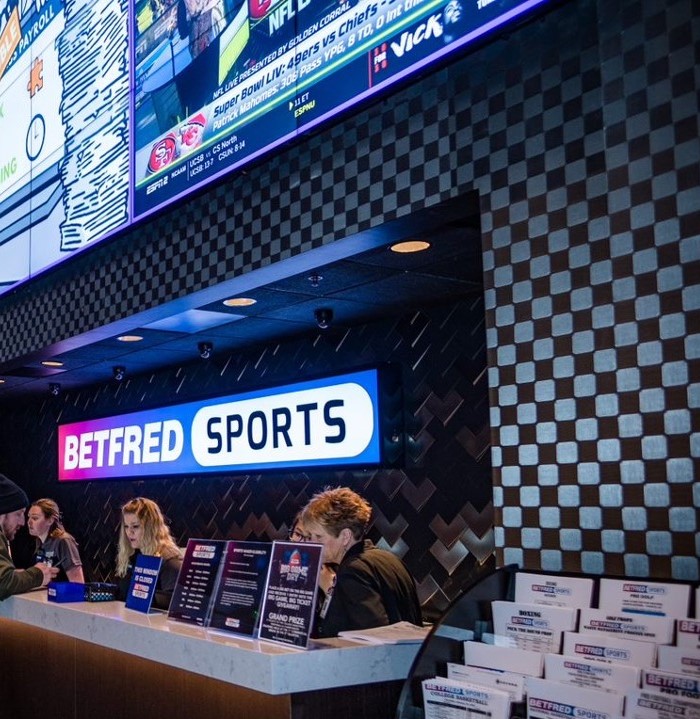
“A lot of bigger online guys do retail when they have to, but they don’t want to – we do, it’s great branding and puts a big presence in metro areas,” he said.
“We’re not naive though, the industry is very web driven. Retail isn’t going to be the market leader, but it will play a good role in our marketing, advertising rollout and development strategy.”
Lastly, central to Betfred’s US adaption, Bennett remarked, has been an approach to staffing which he believes has gone against the grain somewhat.
He hammered home the importance of taking on the US with realistic expectations of what can be achieved, particularly regarding licensing and regulatory conditions.
“You don’t just decide to go into Ohio, for example, and a month later launch your product,” he said. “Business development deals come first, and then licensing can take anywhere from six months to a year.
“Going in with realistic expectations was critical, and the Betfred team had these realistic expectations, and have been prepared for when things don’t go to plan.”
Regarding this team itself, hiring people with a strong background in and knowledge of local conditions, such as tribal casino networks and regulatory frameworks, is pivotal.
With Betfred having operated under the oversight of the UK Gambling Commission (UKGC) for years back in Britain, Bennett urged caution for any European firms looking for a similar experience in the US.
“It’s very fragmented, the compliance and licensing is not always easy,” the COO explained. “That was the biggest piece the UK team had to get around, adapting to the American way of licensing and compliance.
“Getting someone in who understands that area is really important, and we also had to make sure we hired the right attorneys and consultants to navigate the licensing framework.
“I think a lot of European companies started by hiring a European-based person and transferred them over, whilst Betfred did it differently – and this was the right way to go.”

